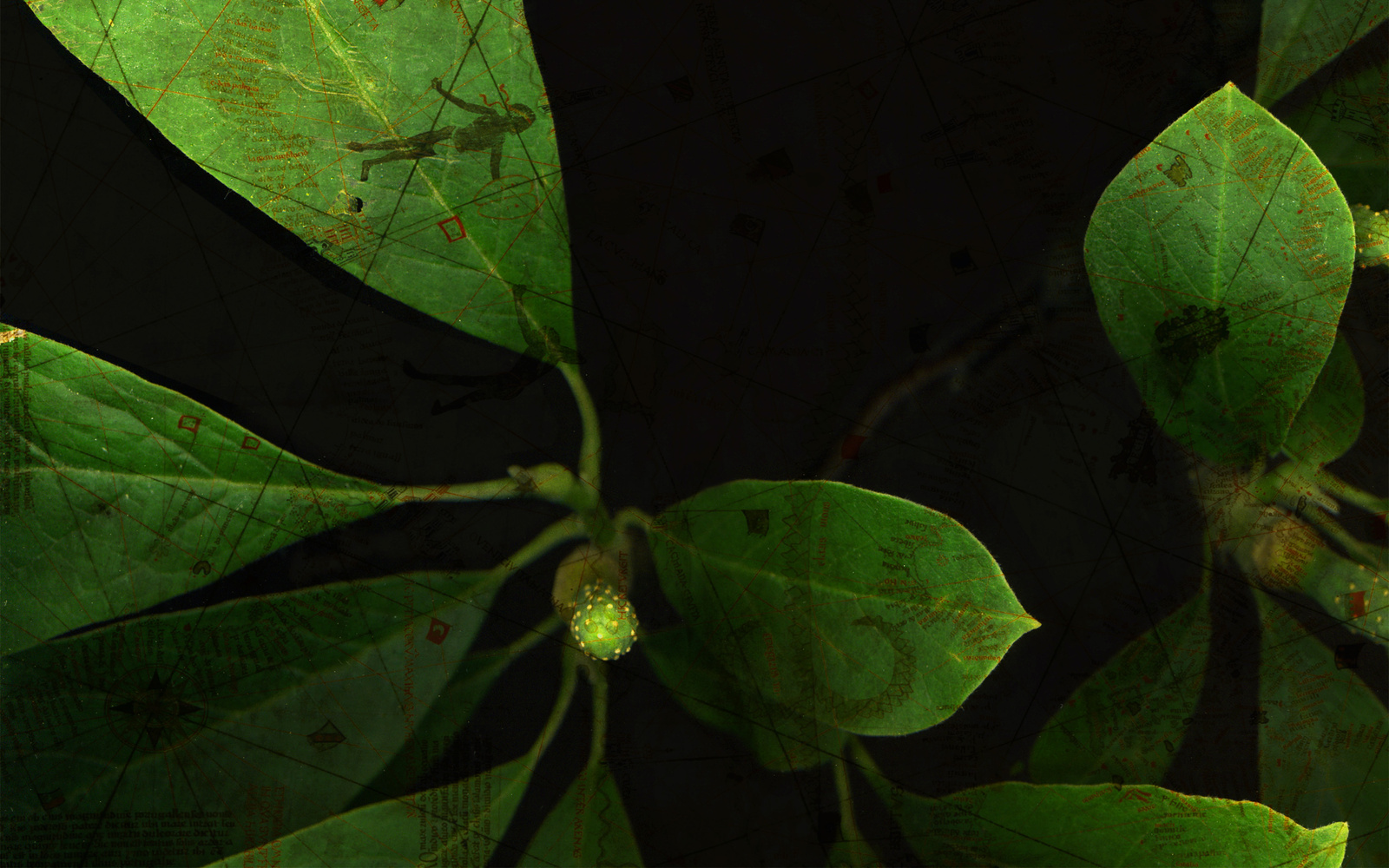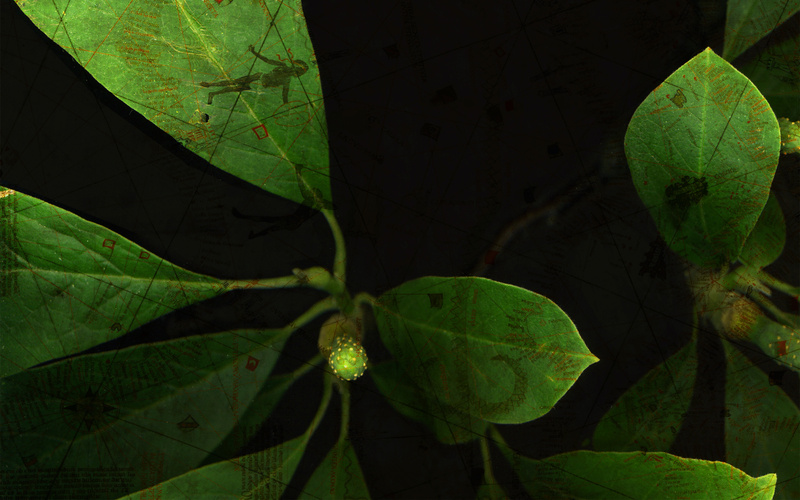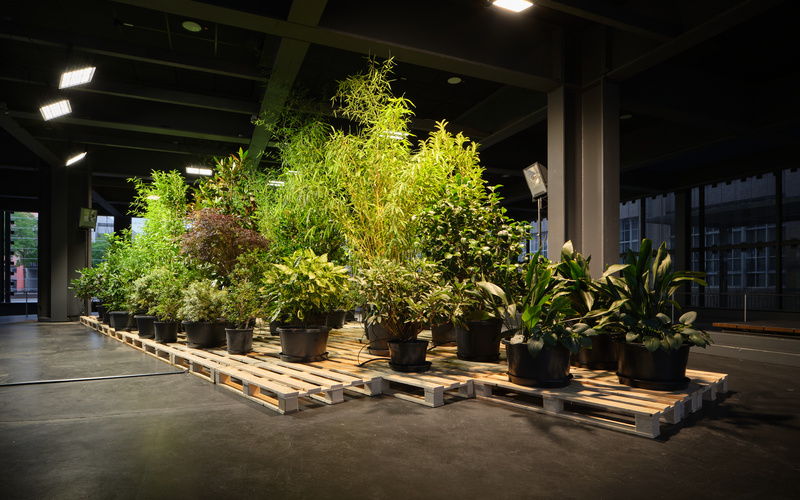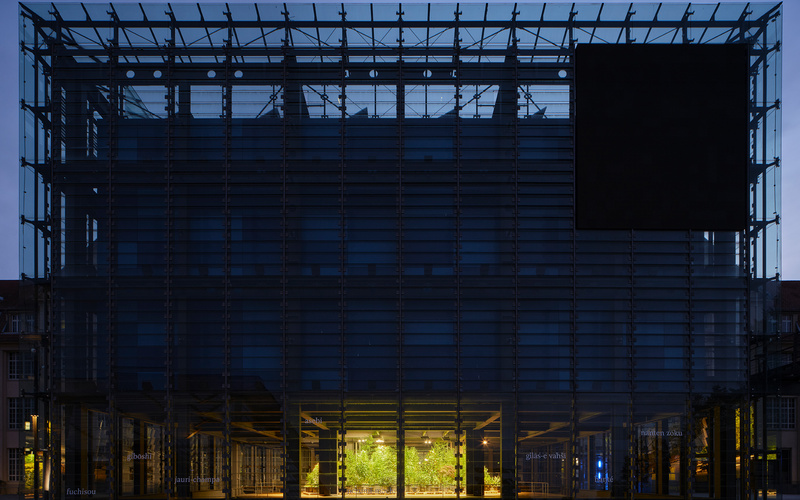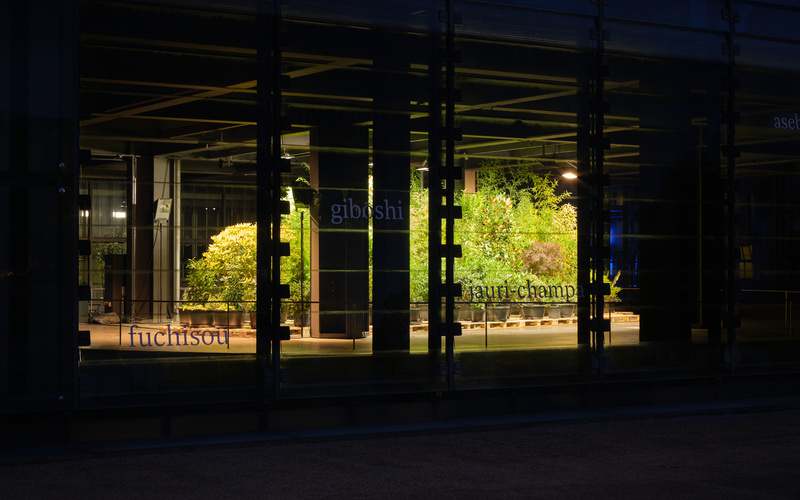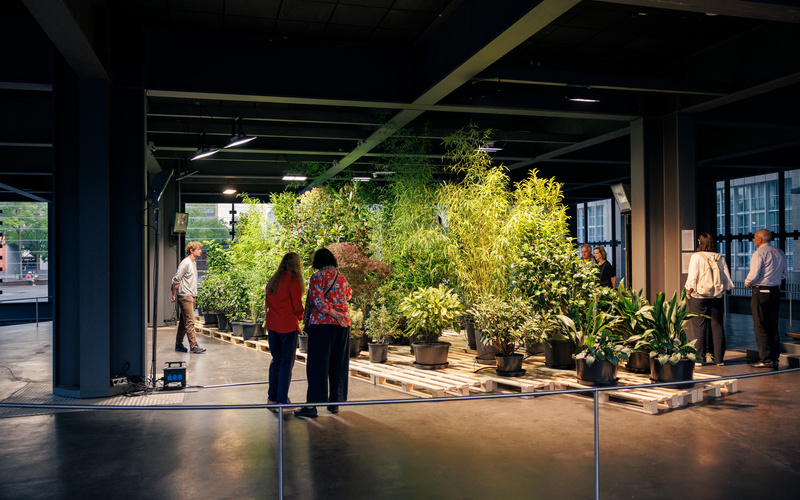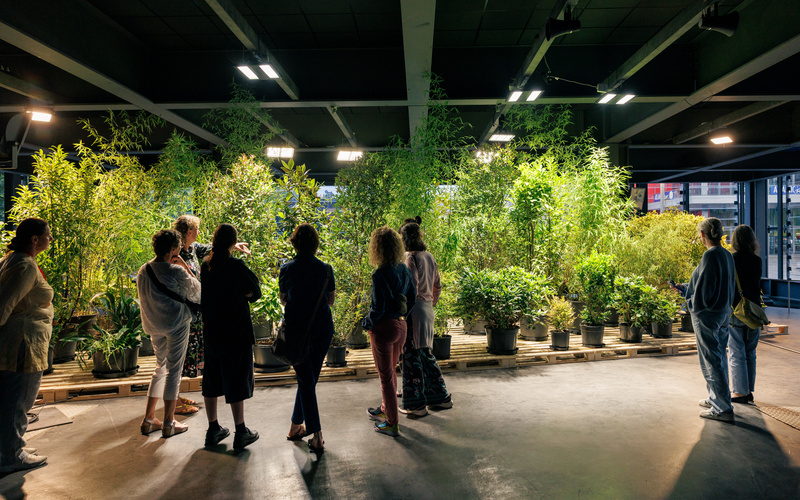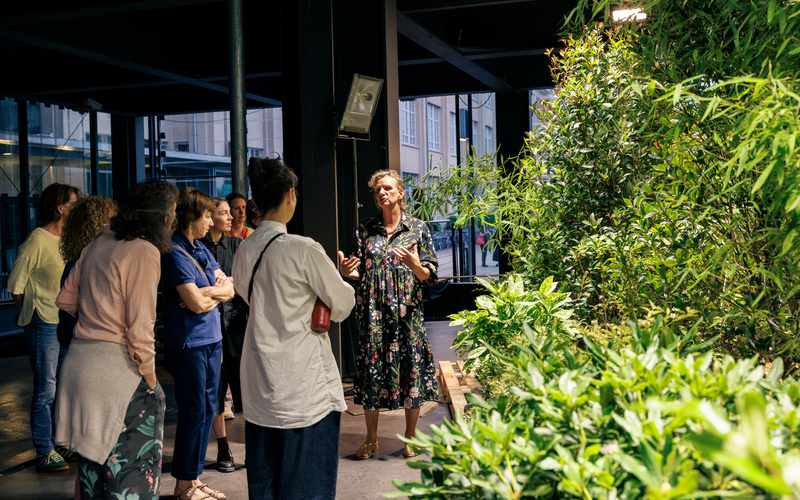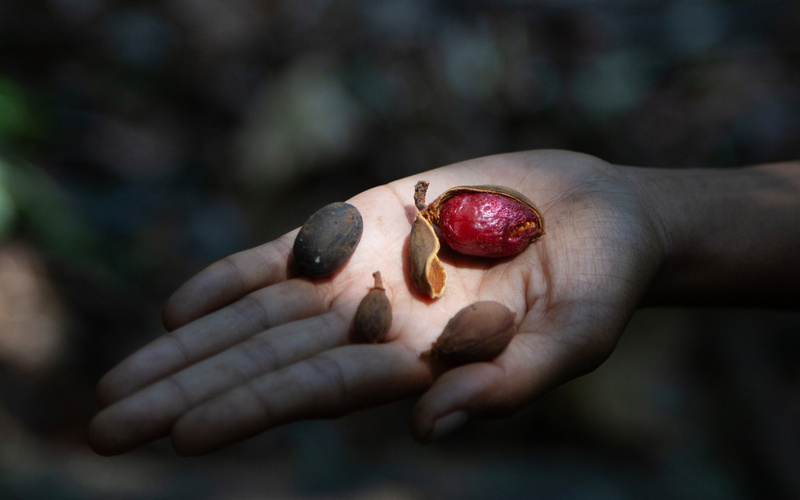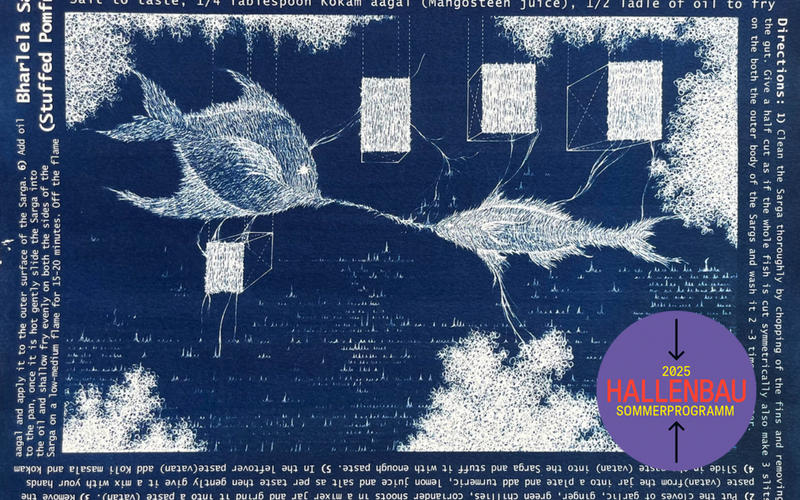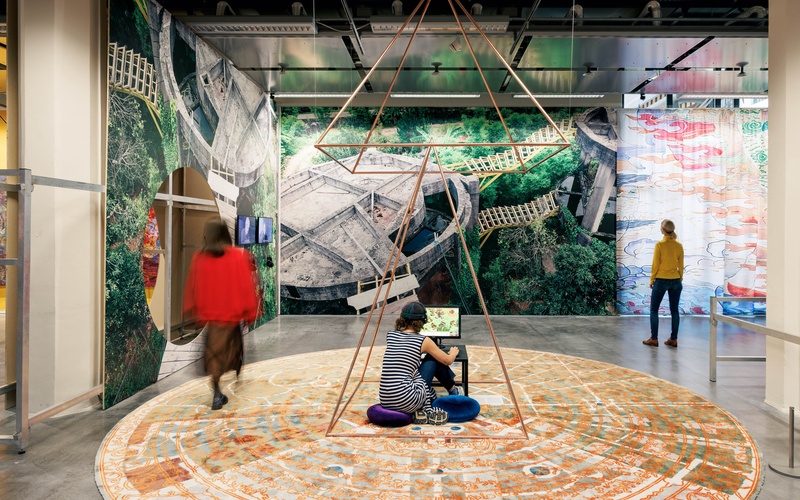Eva-Maria Lopez: Phyto-Travellers
-
Press text
With her newly conceived installation "Phyto-Travellers", Paris- and Karlsruhe-based artist Eva-Maria Lopez creates a spacious indoor garden dedicated to the migration history of so-called neophytes: plants that were introduced from other regions of the world and settled here in the course of colonial expansion and botanical exploration. By interpreting the world of botany as a history of colonial dispossession, Lopez creates a living archive that makes the close interweaving of natural and cultural history tangible. "Phyto-Travellers" is part of the exhibition platform "Fellow Travellers", which has been showing changing projects from around the world since September 2024.
When Christopher Columbus returned from his voyage to the "New World" in 1492, he brought numerous plants back to Europe – including corn, tomatoes, and potatoes. Plants which were introduced here from other regions of the world since that time are called neophytes – "new plants".
At first, these were primarily crop plants which were spread deliberately under colonialism in order to generate profits from their worldwide cultivation. Later, decorative plants followed suit, collected and imported by researchers and so-called plant hunters for their beautiful and exotic appearance. In our gardens, examples such as rhododendron, cherry laurel, or bamboo not only tell a story of global plant migration but also reflect the gardening trends and ideals of various historical periods. They also speak of ecological problems which neophytes cause in times of climate change and the global exchange of goods. In that context, we call them invasive species.
Along their journey across the continents, many plants also lost their names – they were renamed in the West by their so-called discoverers. Camellias, for instance, a relative of the tea plant, have been called Cha or Chai in Asia for millennia. In eighteenth-century Europe, however, they were christened "Camellia" by the Swedish naturalist Carl von Linné in honor of Jesuit priest Georg Joseph Kamel. The history of neophytes thus not only shows as a transcontinental history of botanical migration: its record is also irrevocably inscribed with the history of colonialism – a dossier of symbolic violence and cultural appropriation.
Phyto-Travellers, the newly developed project for the ZKM | Kubus Subraum by Paris- and Karlsruhe-based artist Eva-Maria Lopez, draws this aspect of cultural appropriation and domestication of plants from other regions and cultural contexts into focus. Lopez’s installation features the kinds of imported and renamed decorative plants which have become so deeply rooted in our gardens that they are often perceived as native and natural parts of familiar landscapes. On a 2:3 scale, the installation reproduces the basic shape of the "Niña" – one of the two ships from Columbus’s fleet that first brought the "new plants" to Europe. The resulting indoor garden of neophytes sits atop freight pallets and summons the botanical heritage of a globalized flora, while the original, indigenous names of those plants are cited on the glass façade of the Kubus. Phyto-Travellers thus turns into a living archive that traces the close entanglement of natural and colonial history in a narrative gesture.
Eva-Maria Lopez lives and works in Paris and Karlsruhe. She studied agricultural economics in Kassel and fine arts at the State Academy of Arts in Karlsruhe. The poles of her education are reflected in her interdisciplinary and conceptual artistic work – in the media of photography, augmented reality and installation, Lopez works primarily with plants and their ecosystems. She focuses on questions of biodiversity and the interplay between human and non-human actors, as well as the associated historical and social contexts. Particular attention is paid to gender-specific and colonial historical issues. Eva-Maria Lopez is the co-founder of the organization NAIA - Natural and Artificial Intelligence Association.
